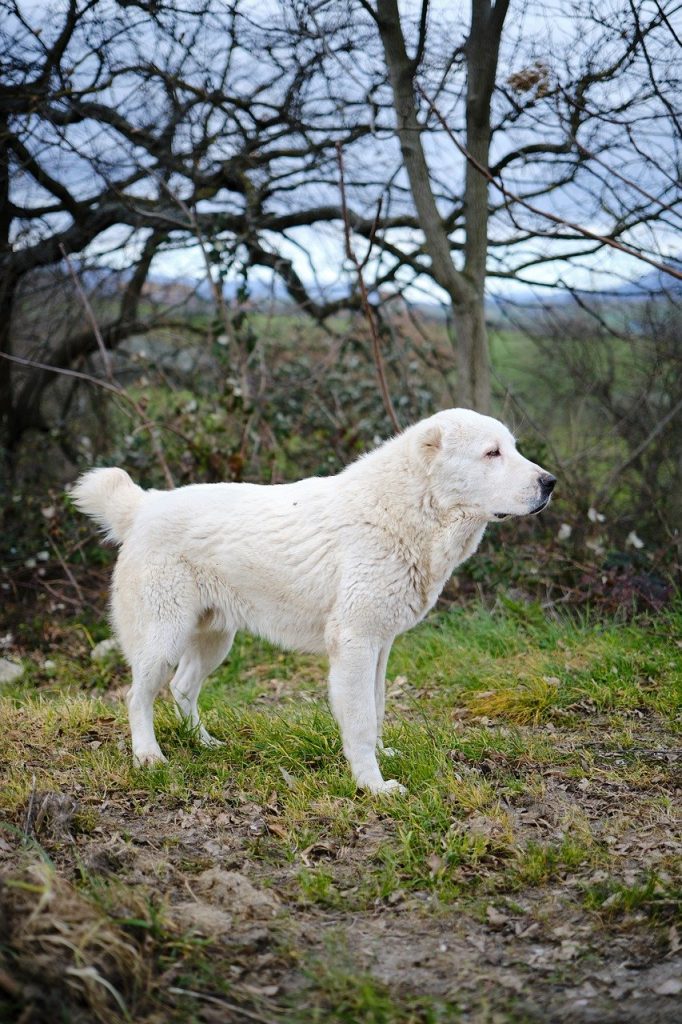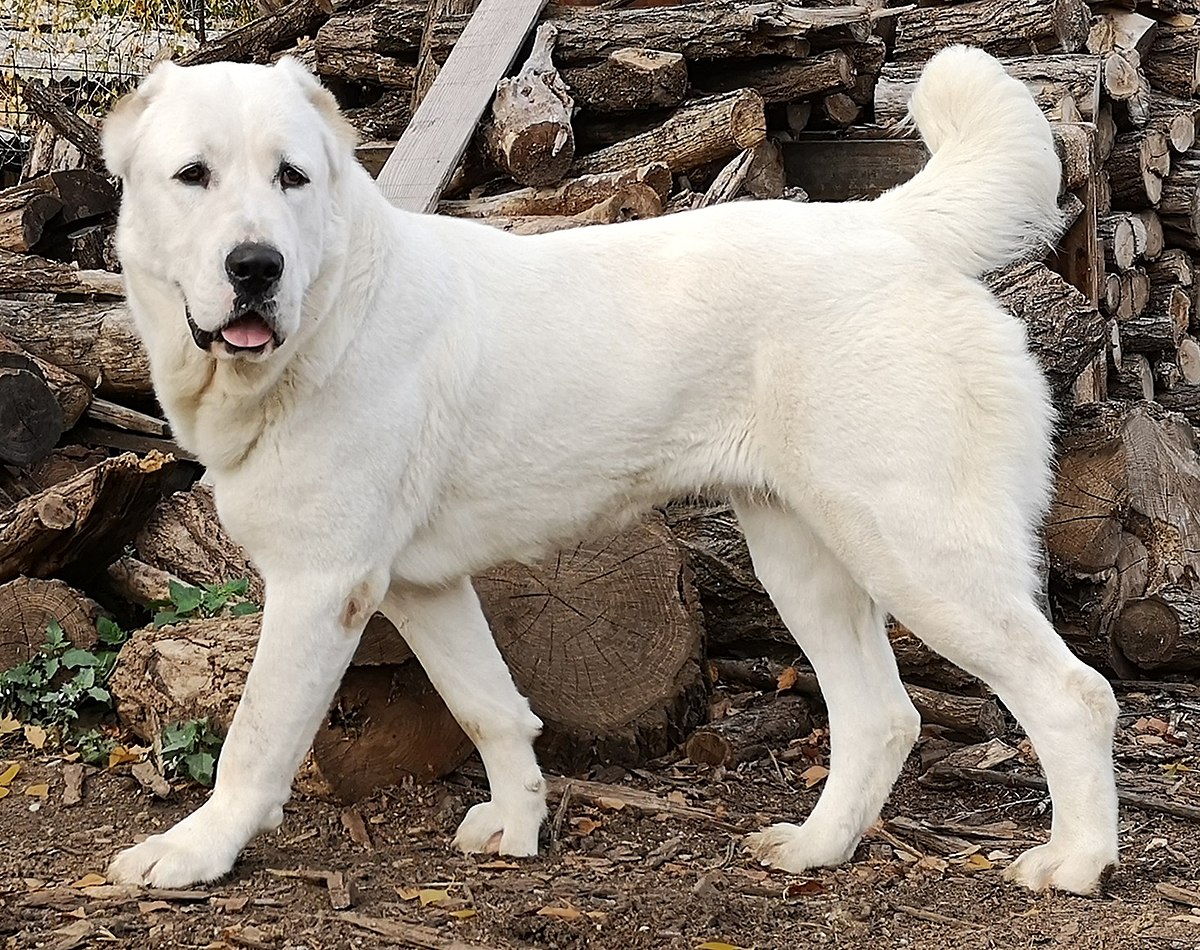Understanding the Nutritional Needs of Central Asian Shepherd Dogs
The Best Food for Central Asian Shepherd Dogs: A Comprehensive Guide
Central Asian Shepherd Dogs, also known as Alabai, are a formidable breed with a rich history as guardians of livestock and property. These dogs are known for their strength, endurance, and loyalty, making them excellent protectors and companions. To maintain their health and vitality, it’s crucial to provide them with a balanced and nutritious diet tailored to their unique needs.

Central Asian Shepherd Dogs are large, powerful animals with a strong, muscular build. They require a diet that supports their energy levels, muscle maintenance, and overall health. Here are the key nutritional needs to consider:
- High-Quality Protein: Protein is essential for muscle development and repair, especially in a breed as robust as the Central Asian Shepherd. Look for dog foods that list high-quality animal proteins like chicken, beef, lamb, or fish as the primary ingredient. The protein content should ideally be around 25-30% for adult dogs.
- Healthy Fats: Fats are a crucial energy source for these active dogs. They also contribute to a healthy coat and skin. Omega-3 and Omega-6 fatty acids are particularly beneficial. Aim for a fat content of around 15-20% in their diet.
- Complex Carbohydrates: While Central Asian Shepherds do not require a high-carb diet, complex carbohydrates from sources like sweet potatoes, brown rice, or oats can provide sustained energy. Avoid foods with excessive grains, especially corn and wheat, as these can cause digestive issues.
- Vitamins and Minerals: Like all dogs, Central Asian Shepherds need a balanced array of vitamins and minerals to support their immune system, bone health, and overall well-being. Look for foods that include vitamins A, D, E, and essential minerals like calcium and phosphorus.
- Joint Support: Given their size and weight, Central Asian Shepherds are prone to joint issues as they age. Foods containing glucosamine and chondroitin can help support joint health and prevent problems like hip dysplasia or arthritis.
Recommended Types of Food
- Dry Kibble: A high-quality dry kibble formulated for large breeds is often the most convenient and balanced option. Look for brands that focus on natural ingredients, avoid artificial additives, and are specifically designed for large or giant breeds.
- Raw Diet: Some owners prefer feeding their Central Asian Shepherds a raw diet, which mimics what dogs would naturally eat in the wild. This typically includes raw meat, bones, and organs, along with some vegetables and fruits. However, a raw diet requires careful planning to ensure nutritional balance and should be prepared under the guidance of a veterinarian or a canine nutritionist.
- Homemade Diets: For those who want complete control over their dog’s diet, homemade meals can be a good option. However, it’s essential to ensure that meals are balanced and include all necessary nutrients. Consulting with a veterinarian is crucial to avoid deficiencies.
- Grain-Free Options: Some Central Asian Shepherds may have sensitivities or allergies to grains. In such cases, grain-free dog food that uses alternative carbohydrates like sweet potatoes or peas can be beneficial.
Feeding Guidelines
- Puppies: Central Asian Shepherd puppies grow rapidly and need a diet rich in protein and calories to support their development. Feed them high-quality puppy food designed for large breeds, and follow the manufacturer’s guidelines on portion sizes.
- Adults: Adult dogs should be fed twice a day to maintain a healthy weight and prevent bloat, a condition to which large breeds are susceptible. Adjust portion sizes based on the dog’s activity level, age, and health.
- Seniors: As they age, Central Asian Shepherds may require fewer calories but need more joint support. Consider senior dog food formulas that are lower in fat but higher in joint-supporting nutrients.
Foods to Avoid
- Low-Quality Dog Food: Avoid dog foods with fillers, by-products, artificial colors, and preservatives. These can contribute to obesity, digestive issues, and long-term health problems.
- Excessive Treats: While treats can be useful for training and rewarding good behavior, overfeeding can lead to obesity. Choose healthy, natural treats and use them sparingly.
- Human Foods: Certain human foods, such as chocolate, onions, garlic, grapes, and raisins, are toxic to dogs and should never be fed to them.
Conclusion
Feeding a Central Asian Shepherd Dog requires a commitment to providing high-quality, balanced nutrition that supports their unique needs. By focusing on a diet rich in protein, healthy fats, and essential vitamins and minerals, you can ensure your Alabai remains healthy, active, and strong throughout their life. Always consult with your veterinarian to tailor the diet to your dog’s specific needs, and be attentive to any changes in their health or behavior that might indicate a need for dietary adjustments.

Leave a Reply
You must be logged in to post a comment.